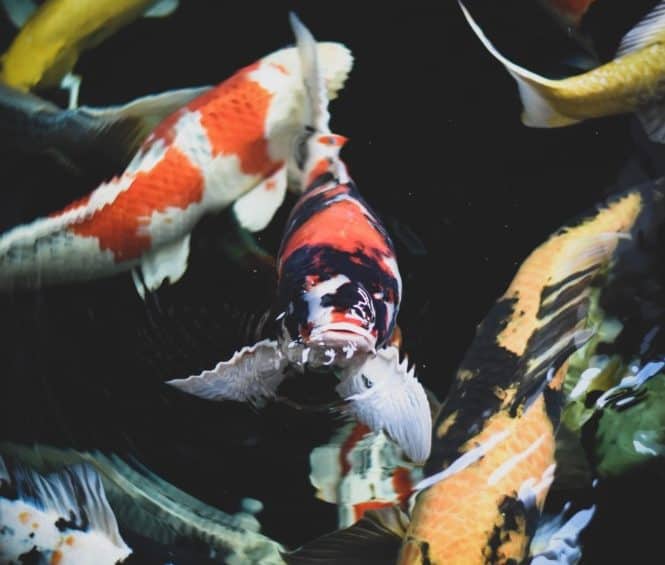A little shock here and there can make for an unpleasing adventure to the inhabitants of your pond. Whether you catch a shock yourself, or you notice weird actions from your fish, making sure your pond is electricity-free is important.
A pond pump and the surrounding wiring can be the cause of electrocution for both fish and humans. If water comes in contact with electricity, like the plugs of your pump or an exposed wire, it sends electric currents through the water which can injure or kill fish.
If you think that you have electrocuted your fish, there are symptoms mentioned below and things to do in order to solve the problem.
Electricity and Water
As most of us have been taught from a young age, water and electricity do not go together and can have really nasty effects. Whether it was mom telling you not to use the hairdryer in the tub, or watching out for lightning when it is storming outside, you’ve been taught in one way or another that electricity and water shouldn’t mix.
Water conducts electric currents through ions. The same happens in small backyard ponds when there is a current running through. Different types of water conduct the electrical currents differently. Hard water conducts electricity better, while soft water does not.
Symptoms of an Electrocuted Fish
An electrocuted fish will display a variety of different signs or symptoms. Most of the time the shock will leave the fish alive, but with problems that it will carry with it throughout the remainder of its life. High enough voltage in the water can be lethal, but because the fish are in the water it depends on a variety of things.
An Injured Fish
An electrocuted fish will often have a crooked back or show signs of some paralysis, and will not swim as well. All of these symptoms and more are mentioned below in a quote from Richard D Moccia from the University of Guelph.
“Surviving fish often appear to have crooked backs and are unable to swim properly. Paralysis of the posterior one-third of the body is evident as a limp, non-responsive tail. If the animal can swim, the movements of the caudal fin are often exaggerated and erratic, and the fish are hyperactive to touch and netting.” Source.
On the other hand, if you have a fish which has burns on its scales or scorched skin, it would be something else or direct contact with an electrical device.
Another rare, but plausible option is lightning. Backyard ponds are often susceptible to lightning, and when this happens fish can be electrocuted. This is not necessarily something within our control, but could be the cause of your problem.
A Dead Fish
On the other hand, if you are trying to determine the cause of your fish’s death, there are other signs to look for to know whether it was electrocution or not.
A dead fish will be completely limp, but if electrocution was the cause there will often be fractured or broken vertebrates and other signs of severe compression and contraction in the muscles. Their internal organs will be reddish and very congested and blood will probably be present.
What to Do
When this has happened to you and your fish, the first plan of action should be to turn off any electrical units connected to or near the pond. This will cut the electrical current until you can find the source. Once you have done this, you should check your pump for water, wire damage, or other types of erosion and problems.
If you are suspecting that there is electricity in your pond that shouldn’t be, there are voltage readers that you can use to check the water with to determine if the voltage is higher than what is acceptable. Often times there are electrical currents running through water, but because the fish are not grounded it doesn’t have a problem unless there is an increase or somehow a circuit is being made.
If you have multiple pumps running, the best option for finding the culprit is by testing each of them and making sure their voltage is within a reasonable range. Often times it will help if you check both DC and AC currents, while watching for surges of power which could also be attributed to the electrocution of your fish.
The best thing to do to help fish that have been shocked is to find out what happened, and make sure it doesn’t happen again. Afterward, fish will be really slow to recover and may never recover to one hundred percent. This is why preventing the problem in the first place is so important.
Make sure to check all your pumps and electrical wiring frequently in order to make sure they are not getting wet or wearing down. Old pumps are much more susceptible to this so it is also important to change your pump out every few years to ensure the protection of your fish.
In the end, it is important to check on your fish and your electrical fixtures and pumps frequently to ensure you don’t electrocute yourself or your fish!
Does your fish often go missing? Read our article on why pond fish disappears and learn what to do.

